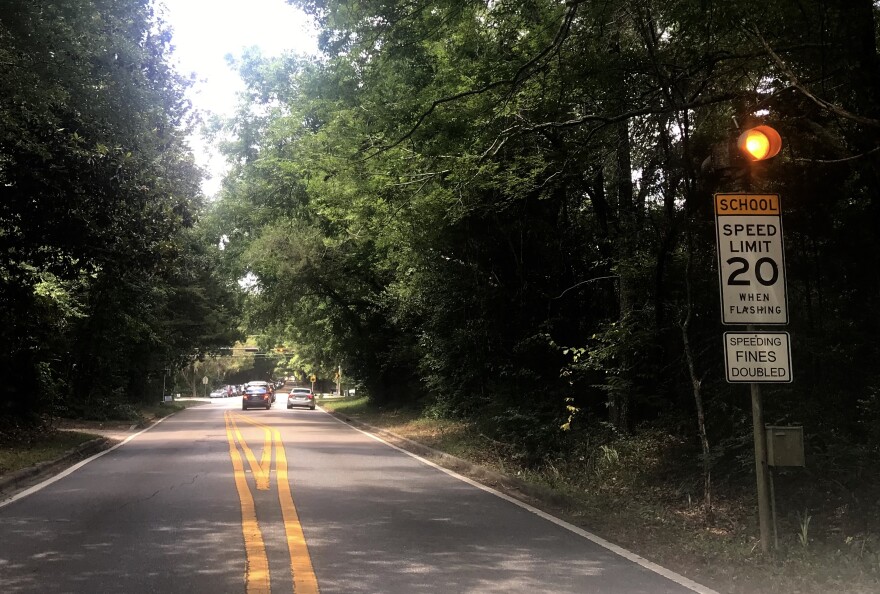Curtis Bryant registered to vote in September, thanks to a Florida constitutional amendment aimed at restoring voting rights to felons who have completed the terms of their sentences.
But the 39-year-old father of three has yet to cast a ballot. He’s afraid that voting might put him back behind bars, Bryant told a federal judge on Thursday.
Bryant is one of the plaintiffs in a high-stakes trial in a challenge to a Florida law designed to carry out the constitutional amendment.
The law, approved by the Republican-controlled Legislature last year, requires felons like Bryant who are no longer incarcerated to pay court-ordered “legal financial obligations” --- fees, fines, costs and restitution --- to be eligible to vote.
Voting-rights groups that filed the lawsuit maintain that making voting rights contingent upon finances is an unconstitutional “poll tax,” while Gov. Ron DeSantis and his administration assert that the law implements the language of the constitutional amendment. The trial, being conducted through videoconference because of the coronavirus, started Monday and will continue Friday.
Bryant, a onetime crack dealer whose last conviction was in 2007, owes more than $10,000 in fees, fines and court costs, he told U.S. District Judge Robert Hinkle during Thursday’s testimony.
The Orlando resident said he pays a collection agency $30 each month toward his court-ordered financial obligations, but it will take him years to erase the debt.
Bryant, who said he lives paycheck-to-paycheck, said he did not vote in two municipal elections in Orange County because he feared he could be prosecuted for violating the law.
“I can’t afford any more charges and neither do I want any more charges,” he said.
Bryant said he joined the lawsuit as a plaintiff because “I think it’s my time to vote,” adding that he wants to vote, in part, to be a role model for his young son.
“I wanted him to be a part of that, to see that his dad has come a long way, even though he doesn’t know the person that I used to be,” Bryant said.
Bryant said he sought reassurance from state and local elections officials that he would not face prosecution if he voted, since he had outstanding legal financial obligations, but his efforts were futile.
Bryant said he wants to vote in the fall elections, like “a regular person.”
“It’s time for me to be heard. It’s time for people to see the change in me. People can change, and live a different life, do better, become an example, a mentor, all of that. I believe I have accomplished that,” he said.
The outcome of the trial could have a significant impact on this year’s presidential election in Florida, a critical swing state in national elections with a long history of close margins.
More than 700,000 Floridians who were convicted of felonies --- dubbed “returning citizens” by proponents of what appeared as Amendment 4 on the November 2018 ballot --- have outstanding financial obligations but are eligible to vote otherwise, according to research performed by University of Florida political science professor Daniel Smith.
In a preliminary injunction issued in October, Hinkle ruled the state cannot deny the right to vote to felons who are “genuinely unable” to pay financial obligations associated with their convictions. The 11th U.S. Circuit Court of Appeals upheld the injunction, which applied only to the 17 named plaintiffs in the case. Hinkle this month granted class certification to plaintiffs, adding potentially hundreds of thousands of felons to the lawsuit.
Hinkle’s October ruling also ordered DeSantis’ administration to come up with a process in which felons could try to prove they are unable to pay financial obligations and should be able to vote.
The Republican governor’s administration is fiercely defending the law, despite a series of decisions pointing toward a final decision by Hinkle in favor of the plaintiffs.
In addition to Bryant’s testimony Thursday, California Institute of Technology professor Morgan Kousser spoke at length about research he conducted regarding the 2019 legislation (SB 7066) and the history of felon disenfranchisement in Florida and elsewhere.
The Florida Legislature “was aiming at a bill that had maximal disenfranchisement result” when crafting the law, Kousser, who specializes in “racially polarized voting,” wrote in a 128-page report prepared for the plaintiffs.
Florida legislators were repeatedly warned that requiring payment of fees, fines and restitution for felons to vote would have a disproportionately negative impact on black Floridians, who comprise about 20 percent of felons in the state, Kousser said.
While questioning Kousser on Thursday, Leah Alden, a lawyer with the NAACP Legal Defense Fund, played numerous clips of lawmakers discussing the bill during the 2019 legislative session, prompting a scolding from Hinkle. The judge said the excerpts were unnecessary.
Following the judge’s admonition, Alden played a lengthy segment of Sen. Perry Thurston, a black Democrat from Fort Lauderdale, directly linking the Senate bill to Florida’s ugly history of preventing African-Americans from participating in elections.
At the end of the video, Hinkle announced he would give the defendants 10 minutes longer than the plaintiffs for closing arguments and would continue to dock time if the plaintiffs continued to ignore his warnings.
Kousser testified that he believes partisanship and race are “inextricably intertwined” in Florida and the United States and that race is “completely imbued” in the struggle about felon disenfranchisement.
“I don’t think it can be separated. I think that would be another world. That would not be the world that we live in. That would be Sweden’s history, Norway’s history, something like that. That would not be Florida’s history or America’s history,” he said.



